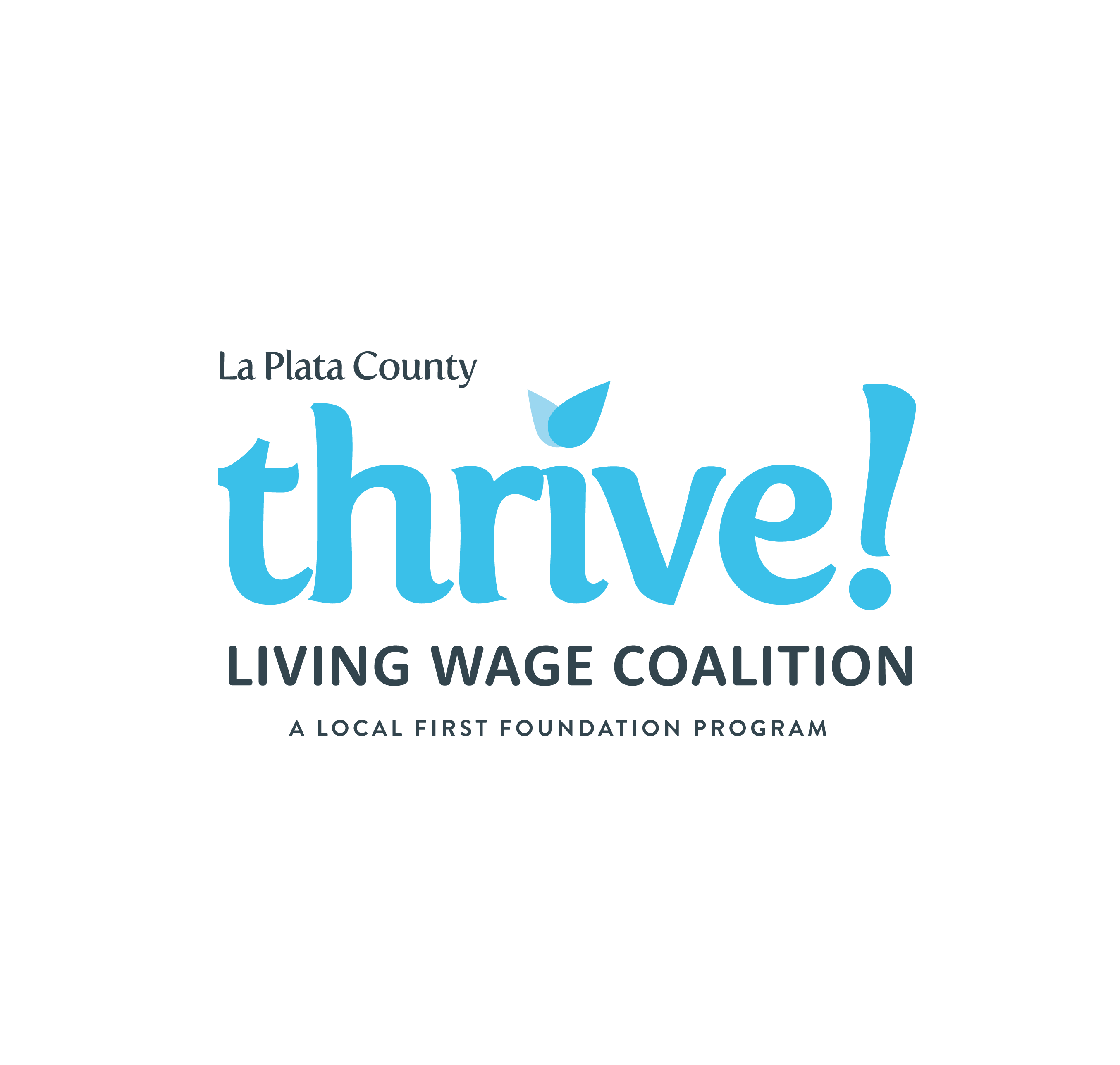ReHire with Resilience Workshop
Hosted by GBC’s Resilient Restaurants
in Collaboration with Local First & In the Weeds
Monday, June 7, 2021 at Zia Taqueria
The Issue: Restaurants are experiencing record-low application rates, compared to previous seasons, despite increased incentives.
While labor trends have shown a steady retreat from demanding work cultures, such as food and service industry, for years, the pandemic further prioritized the values of work-life balance, mission-driven employment, and supportive and collaborative work environments.
For almost a year and a half, seasoned service and kitchen staff were required to adapt to inconsistent hours, understaffed operations, and often carried the burden of frontline enforcement of contentious public health mandates (let alone navigating the rising costs of childcare, healthcare, and affordable housing being experienced across the board). For these reasons, many employees are experiencing burnout and have decided to take a break from the industry, find relief through unemployment benefits, or switch career paths altogether.
So as vaccinations increase and public health restrictions soften, our restaurants are struggling to hire enough staff to reopen at full capacity.
What can be done: Implement creative application incentives, strengthen employee benefits, standardize job listings, and transition to more equitable wage models (like tip pooling and service charges) for long-term cultural shifts.
Next Steps
- Resilient Restaurants will be selecting one interested restaurant to participate in their new statewide pilot program; a 6-month wage model transition and leadership training program that includes financial compensation for you and your staff, hours of personal and professional development for all leaders on your staff.
- Exploring Tip Pool vs. Service Fee models (Local First/Resilient Restaurants)
- For immediate use as a primer, Equitable Wage Models Introduction Video. https://youtu.be/AxIiprFiMPU
- Upcoming workshop will quickly overview wage model options, and more comprehensively cover legal and accounting implications; we’ll open up for direct Q&A.
- Creation of a Wage & Compensation Model Tracking System that can compare the state of our dining establishments through the pandemic and recovery, with compensation model transitions driving metrics for rehire success, employee retention and loyalty, employee job quality and quality of life. (Resilient Restaurants/Local First/Thrive). Feasibility assessment is the commitment.
- In The Weeds will work on the creation of a Housing Focus Group
- Short term goals/actions:
- Working with Housing Solutions, Oak Tree Resources, and acquiring a realty company to assist in representing industry members
- Long term goals, actions:
- Create a committee that will work to create affordable housing options and resources. This will be done by providing physical locations and more financial resources to support low income individuals.
- Addressing other issues with the City Council around community access, taxes, etc.
- As part of this effort, Housing Solution of the SW and SWCCOG are conducting a survey of stakeholders who work in the fields of housing, residential development, supportive services, and policy throughout the southwest region.This study will draw on local housing needs studies and compile current data on housing costs and affordable housing supply. Survey here: https://www.research.net/r/SWCOHousingsurvey
- Short term goals/actions:
- Consumer-Facing campaign (In The Weeds/Local First)
- Data for the public that outlines the challenges faced by restaurants with increase in commodity and labor cost (inflation and pandemic disrupted supply chains)
- Explore Options for proper promotion of Job Fair Boards (Local First/BID)
- Additional Workshops
- Exploring Creative Benefits: Healthcare, Wellness, Parking, etc. (Local First/SBDC)
- Culture-Focused Marketing (SBDC/Local First)
- Trauma-Informed Leadership Workshops (In The Weeds)
- Upskilling Communication Training (SBDC/In The Weeds?)
- Colorado Workforce Development Council resources that are immediately available to employees of food and beverage and retail business
- https://cwdc.colorado.gov/lives-empowered Links to 4 programs, one you can offer to your high school student employees.
- https://worklifepartnership.org/lives-empowered/ there are hundreds of available grants available – $350/per person, to pay for rent, bills, food, etc.
Breakout Group: Wage Models and Comprehensive Benefits
Application Incentives/Benefits
*Note: it was stressed that while restaurants want to provide incentives for new hires, they want to be sure they are also taking care of the current staff that’s weathered the pandemic with them.
- Refer a Friend Bonuses (some have tried but saw little success)
- Mileage Reimbursement (ex: offering 3 months of reimbursement for existing employees, 1 month as an incentive for new hires)
- Parking Vouchers or Refunds
- Comprehensive Healthcare Benefits: Sunnyside Family Care Membership vs. Southwest Health Alliance (our local healthcare option for small businesses, tax write-off)
- Virtual onboarding through the Payroll Department or Bamboo HR
- Mental Wellness opportunities (ex: access to In The Weeds facility between shifts)
Wage Models: Service Charge vs. Tip Pool:
- Shifting models to address front of house/back of house inequity and tension, creating a more collaborative work environment for all employees
- Restaurants sought clarification about tip pooling legality/tax credit logistics
- Interest in providing at least a minimum wage across the board, if not achieving a Livable Wage Certification, to brand company culture and employment opportunities
- Interest in conversion calculators to exemplify how a change in wage model could affect payroll, menu prices, taxes, etc.
Additional Needs:
- Standardize Job Listings – to include defined base wage, tip range, and outlined benefits.
- Job Board – Work with Connecting Colorado, Fort Lewis College, etc. to expand exposure and impact of current job boards
- Basic Communication Upskilling for New and Current Staff
- Community-Facing Campaign – to encourage support of local restaurants and explain the factors behind increased menu prices
- Trauma-Informed Leadership Trainings, courtesy of In The Weeds
- Culture-driven marketing training
Misc. Adapted Practices:
- Virtual Component to Job Interviews: Recording first interview over zoom, passing the recording along to potential managers. Applicants then come in-person to meet the manager and pick up orientation materials. This saves time for initial interviews while having an in-person vetting round.
- Online applications are a must! Ask applicants for their preferred method of contact.
- Happy Hours are limited to just drinks, so as not to lose revenue on food.
Breakout Group: Housing
Housing discussed the crisis of rising rent and housing prices. Primarily discussing how we can get housing available to our staff. A lot of folks have either had to move further from town, which makes transportation harder and raises other issues (timeliness to arrive at work, etc.). Some have had team members have to completely move out of the area due to loss of housing altogether. Lodger’s tax was brought up, and the fact that costs have increased nearly 40%. Below we have next steps that we all discussed.
Breakout Group: Regional Hiring
This group focused mainly on incentives for hiring and regional recruitment. As reaffirmed by Lucas Hess of the Durango Workforce Center, job postings with incentives and benefits are more likely to catch the eye of a job-seeker. The additional unemployment benefits expire in September, at which point this situation could change with more applicants
- Incentive Ideas/Best Practices:
- Paying mileage for commuters from outside the region
- Important to do this only if current employees receive the same or better benefit (ex: new employee gets 1 month, current employees get 3 months)
- Parking reimbursement (this could be funded by BID)
- Publicize your internal policy for benefits (50% off, mental wellness, etc) so that applicants are aware of what you have to offer
- Wellness and Healthcare benefits are highly sought after and appealing to applicants
- Benefits do not necessarily need to be monetary, it could be a form of PTO or flexible scheduling/split shifts
- Paying mileage for commuters from outside the region
- Creative Ideas to expand the applicant pool:
- Youth internships/job training and summer employment could fill the gaps this year
- Bayfield and Ignacio High Schools are untapped for the labor market
- Fort Lewis is an untapped group of potential workers, Local First will work to establish a better communication chain between local businesses and the college
- Many job boards for these jobs already exist – the matter is marketing them to the correct people → google analytics/instagram advertising? Management of the job board may be too time consuming.
- What about a promotional program, businesses are each given $100-200 to boost their job posts across social media platforms – targeting college age/young adults
POST EVENT SURVEY: https://forms.gle/4x5SL2FtuCF1Azm8A
Contact Information:
Resilient Restaurants: Robert Bogatin, Director, robert@goodbusinessco.org
In the Weeds: Blaine Bailey, Executive Director, director@intheweedsco.org, 608-425-0084
Local First: Emily Bell, Managing Director, director@local-first.org, 970-799-6618×1
Thrive Living Wage: Lauren Haggerty, Program Director, thrive@local-first.org, 970-799-6618×4






